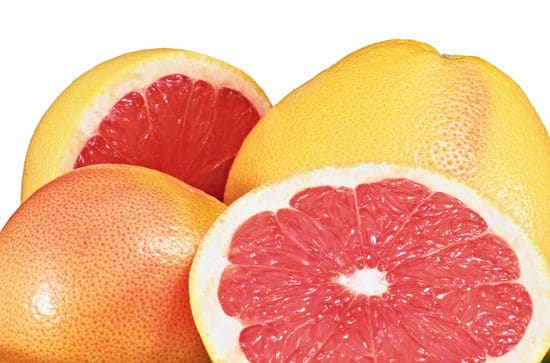

What comes to mind when you think of grapefruit? For me, it is the picture of the All-American healthy breakfast. You know what I’m talking about – you’ve seen it so many times that it has become cliché – a bowl of whole grain cereal flanked by a beautiful, ripe half-grapefruit, a glass of OJ and maybe some coffee. It’s safe to say that virtually any person you ask would agree that grapefruit is a healthy food. So it came as a real shock to me to learn that the University of Florida’s Citrus Research and Education Center published a paper in December 2012 describing efforts to genetically modify grapefruit to protect people from the potentially deadly effects of eating it.
A Health Food Gone Bad
How did this icon of healthy eating suddenly become life-threatening? Grapefruit, along with certain other citrus fruits, contains “furanocoumarins.” These naturally-occurring chemical compounds interact with the active ingredients in some statin drugs, causing the drugs to be absorbed too quickly. This can amplify the effects with dangerous or even deadly results. What makes this combination more hazardous is the good medical advice usually given along with the prescription, which includes eating more fruits and vegetables.
Unaware of this “grapefruit effect,” some citrus lovers may unknowingly be creating a perilous cocktail by eating this fruit while taking a statin drug.
The short-term, practical solution is for pharmaceutical manufacturers, pharmacists and doctors to educate patients about this and other food/drug interactions. And, considering the growing number of drugs being identified as unsafe when combined with grapefruit, it is not unreasonable to try to create a hybrid that does not contain these compounds. That being said, let me take this opportunity to propose another possible solution, at least as it applies to managing cholesterol levels in the blood.
A Novel Approach to Cholesterol Management – Healthy Lifestyle
According to the Mayo Clinic, “Whether you need to be on a statin depends on your cholesterol level along with your other risk factors for cardiovascular disease.” The blood cholesterol levels they cite as high are: total cholesterol level of 240 mg/dl or higher and low density lipoprotein (LDL) cholesterol level of 130 mg/dl or higher. The other risk factors cited are:
- Family history of high cholesterol or cardiovascular disease
- Inactive (sedentary) lifestyle
- High blood pressure
- Poor general health
- Diabetes
- Overweight or obesity
- Smoking
- Narrowing of the arteries in the neck, arms or legs (peripheral artery disease)
If you fall into the category of a person with high cholesterol uncomplicated by most or all of these other risk factors, you might consider discussing with your physician the choice of managing your cholesterol with diet and lifestyle changes.
Here are 7 healthy choices you can make to begin lowering your cholesterol levels today:
- Quit smoking
- Exercise vigorously 30-40 minutes per day, 5 to 6 days a week. Include strength training days as well as cardio days in the mix to maximize your body’s ability to manage weight and blood sugar.
- Choose healthy, fresh foods that you cook and eat at home. Fast food and processed foods are loaded with unhealthy fats, chemicals and sodium. Your daily nutrition should include lots of fruits and vegetables, lean sources of protein and fats derived mostly from healthy oils (olive, flaxseed, sunflower, safflower, grapeseed, etc.), seeds and nuts.
- Avoid sugar – that means soft drinks, energy drinks, sports drinks, candy and other sweets.
- Limit alcohol intake – alcohol congests your liver, making fat and cholesterol management harder to achieve.
- Manage your stress – stress is a proven cause of elevated cholesterol. Numerous studies have been performed showing a marked reduction in cholesterol using regular meditation.
- Consider using nutrition supplements designed for cardiovascular support. These include fish oil, antioxidant, anti-inflammatory, metabolic and liver support complexes.
Please be advised that if you choose to use any or all of these recommendations (especially exercise), it should be done with the knowledge and advice of your physician. Most importantly, never discontinue taking statins or any other medication without the advice and supervision of your physician.
But, Remember. . .
In today’s complicated healthcare environment, many physicians are overwhelmed by the documentary requirements that compromise the time they can spend with their patients. This can lead them to recommend and prescribe the most expedient alternative they have at their disposal. When it comes to cholesterol, this means statins. It is your responsibility to discuss alternatives that may be better for you. And if you choose to get off statins and go the lifestyle route, good for you.




